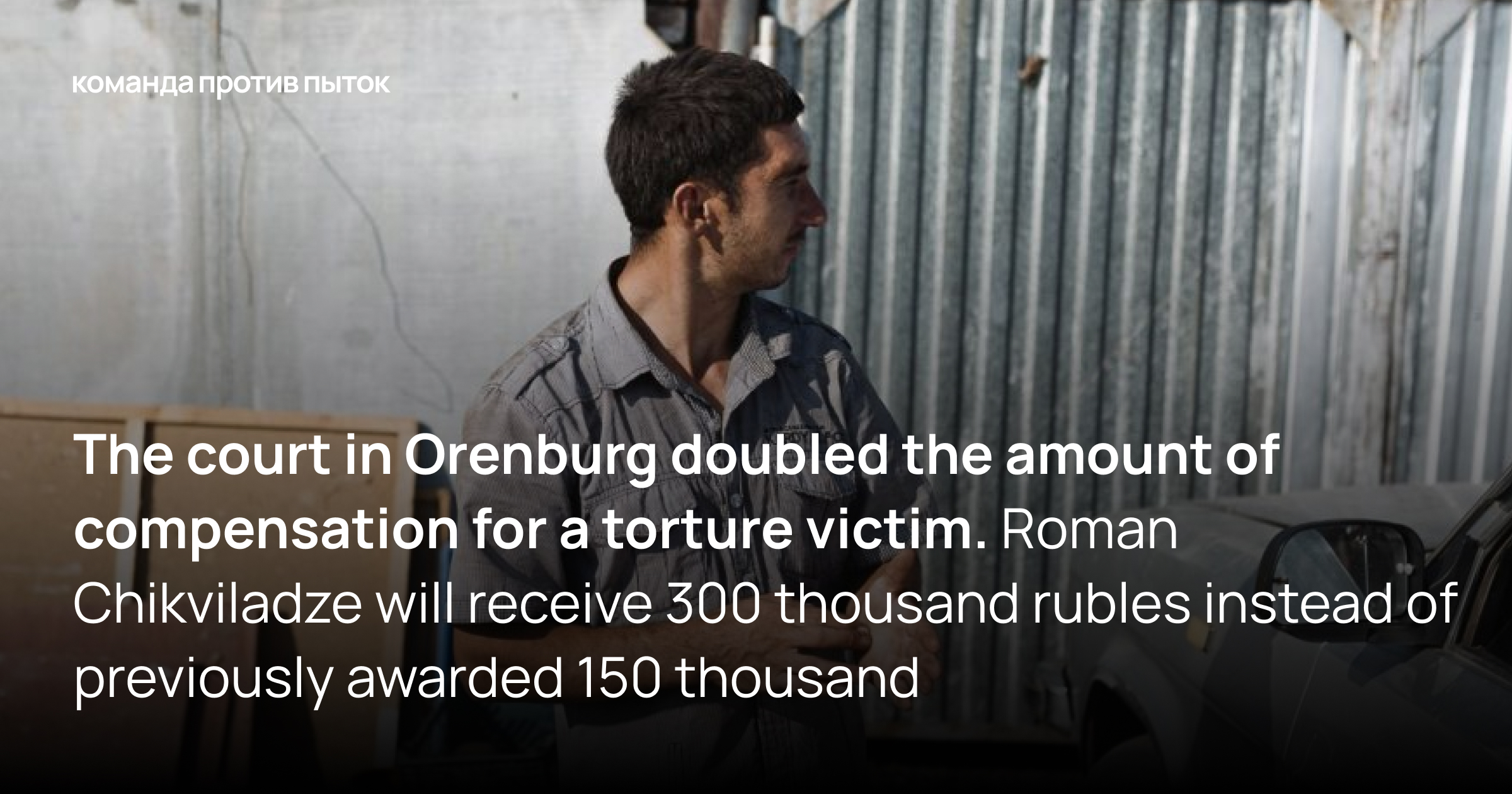НАСТОЯЩИЙ МАТЕРИАЛ (ИНФОРМАЦИЯ) ПРОИЗВЕДЕН, РАСПРОСТРАНЕН И (ИЛИ) НАПРАВЛЕН ИНОСТРАННЫМ АГЕНТОМ «КОМАНДА ПРОТИВ ПЫТОК» ЛИБО КАСАЕТСЯ ДЕЯТЕЛЬНОСТИ ИНОСТРАННОГО АГЕНТА «КОМАНДА ПРОТИВ ПЫТОК» | 18+
The Orenburg Regional Court agreed with the arguments of the lawyers of the Crew Against Torture and increased the amount of compensation from 150 to 300 thousand rubles. The Ministry of the Interior of Russia must pay this money to Roman Chikviladze for the fact that in August 2019 he was tortured with an electric shocker by former (by now) police officers Sergey Pavlov and Rinat Arslambayev.
In August 2019, Roman Chikviladze and his brother Valiko Baygulov from the Cherny Otrog (the Saraktashsky District of the Orenburg region) were apprehended by the police under suspicion of stealing five thousand rubles. The police officers brought them to the building of the Chernootrozhsky Rural Council, where they tied them up to a chair and tortured with electricity. They hit Roman with electricity no less than five times. The court established that Pavlov was electrocuting the victims in the groin area, and Arslambayev was holding a chair to which Chikviladze was tied. The brothers claimed that they did not take any money, but, having yielded to torture, Roman took the blame upon himself. Then the men were released, and a criminal case was opened against Roman, which later on was dismissed.
In June 2021, the police officers were sentenced to real jail time with serving the sentence in a standard regime penal colony: Pavlov was sentenced to 3 years and 4 months, Arslambayev – to 1 year and 8 months. Both ex-officers were stripped off the special ranks. Later on, the court lightened the punishment of Rinat Arslambayev, having replaced the remaining jail time with a supervised release. Sergey Pavlov continues to serve the sentence in a standard regime penal colony.
The comment by CAT lawyer:
«We are satisfied with the ruling of the Orenburg Regional Court. The panel of judges agreed with the arguments of our appellate appeal on low amount of compensation. Taking into account the regional judicial practice for such category of cases – it is quite a good result, although far from the ECHR accepted practice».
